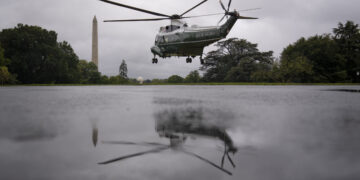FOR IMMEDIATE RELEASE:
August 21, 2017
Contact: press@defensepriorities.org
WASHINGTON, DC—In case you missed it, The Atlantic has featured an editorial by Ford International Professor of Political Science and Director of Security Studies Program at MIT Barry R. Posen in which the current states of affairs in Afghanistan is examined. According to Posen, from a strategic perspective, a dramatic reduction of the U.S. presence in Afghanistan—or even a complete drawdown—would likely realign regional behavior in ways that would drive current U.S. adversaries apart, force them to deal with difficult local problems, and encourage other regional powers to seek better ties with Washington. From an American perspective, it is a win-win.
As Posen explains in The Atlantic:
Afghanistan is a good place to create problems for America’s adversaries. And the best way to do that is to get out.
Those who instead advocate a dramatic increase in the U.S. commitment to Afghanistan would say that the best way to fight terrorists is to remain on the offensive. The problem with that argument is, of course, that America has been on the offense for 16 years in Afghanistan and elsewhere and victory remains elusive. Terrorist groups motivated by a particularly toxic interpretation of Islam remain strong, and in fact have emerged in new places. Nothing about this strategy, by the way, need prohibit U.S. raids on known terrorist hideouts in Afghanistan.
Some may also argue that Washington cannot afford to undermine its prestige by leaving Afghanistan in the lurch. Given the lives, money, and time that it has poured into building a stable Afghanistan, it is Afghans who have let the U.S. down, not the reverse—pouring more resources into a losing effort won’t enhance confidence in U.S. judgment or its staying power.
Read the entire editorial HERE via The Atlantic.
Author

Barry
Posen
Ford International Professor of Political Science, Security Studies Program
Massachusetts Institute of Technology
More on Afghanistan

Featuring Daniel DePetris
September 18, 2025

January 13, 2025

January 9, 2025




